Cass R. Sunstein - #Republic: Divided Democracy in the Age of Social Media
Here you can read online Cass R. Sunstein - #Republic: Divided Democracy in the Age of Social Media full text of the book (entire story) in english for free. Download pdf and epub, get meaning, cover and reviews about this ebook. year: 2017, publisher: Princeton University Press, genre: Politics. Description of the work, (preface) as well as reviews are available. Best literature library LitArk.com created for fans of good reading and offers a wide selection of genres:
Romance novel
Science fiction
Adventure
Detective
Science
History
Home and family
Prose
Art
Politics
Computer
Non-fiction
Religion
Business
Children
Humor
Choose a favorite category and find really read worthwhile books. Enjoy immersion in the world of imagination, feel the emotions of the characters or learn something new for yourself, make an fascinating discovery.
- Book:#Republic: Divided Democracy in the Age of Social Media
- Author:
- Publisher:Princeton University Press
- Genre:
- Year:2017
- Rating:3 / 5
- Favourites:Add to favourites
- Your mark:
#Republic: Divided Democracy in the Age of Social Media: summary, description and annotation
We offer to read an annotation, description, summary or preface (depends on what the author of the book "#Republic: Divided Democracy in the Age of Social Media" wrote himself). If you haven't found the necessary information about the book — write in the comments, we will try to find it.
From the New York Times bestselling author of Nudge and The World According to Star Wars, a revealing account of how todays Internet threatens democracyand what can be done about it
As the Internet grows more sophisticated, it is creating new threats to democracy. Social media companies such as Facebook can sort us ever more efficiently into groups of the like-minded, creating echo chambers that amplify our views. Its no accident that on some occasions, people of different political views cannot even understand each other. Its also no surprise that terrorist groups have been able to exploit social media to deadly effect.
Welcome to the age of #Republic.
In this revealing book, Cass Sunstein, the New York Times bestselling author of Nudge and The World According to Star Wars, shows how todays Internet is driving political fragmentation, polarization, and even extremismand what can be done about it.
Thoroughly rethinking the critical relationship between democracy and the Internet, Sunstein describes how the online world creates cybercascades, exploits confirmation bias, and assists polarization entrepreneurs. And he explains why online fragmentation endangers the shared conversations, experiences, and understandings that are the lifeblood of democracy.
In response, Sunstein proposes practical and legal changes to make the Internet friendlier to democratic deliberation. These changes would get us out of our information cocoons by increasing the frequency of unchosen, unplanned encounters and exposing us to people, places, things, and ideas that we would never have picked for our Twitter feed.
#Republic need not be an ironic term. As Sunstein shows, it can be a rallying cry for the kind of democracy that citizens of diverse societies most need.
Cass R. Sunstein: author's other books
Who wrote #Republic: Divided Democracy in the Age of Social Media? Find out the surname, the name of the author of the book and a list of all author's works by series.

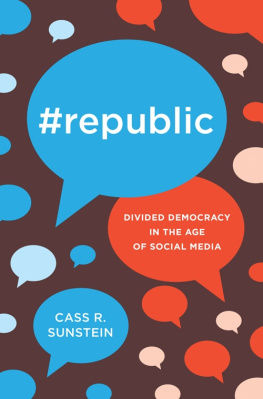
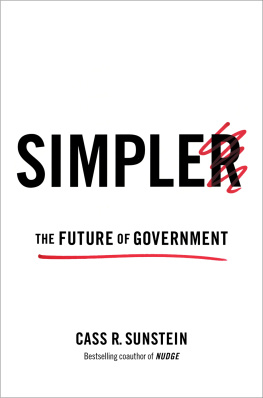
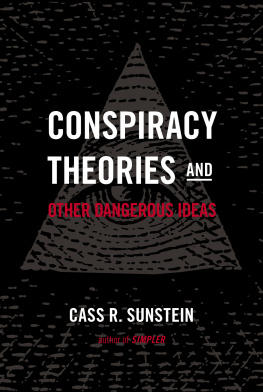
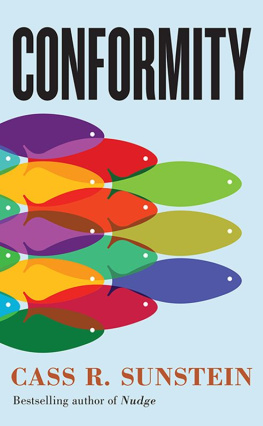
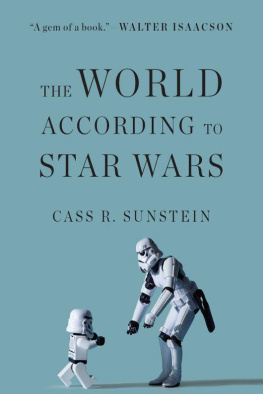
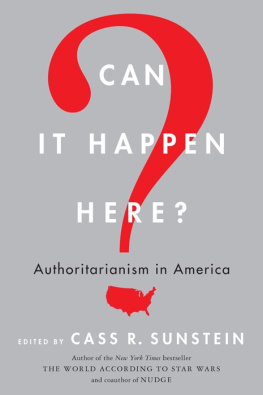
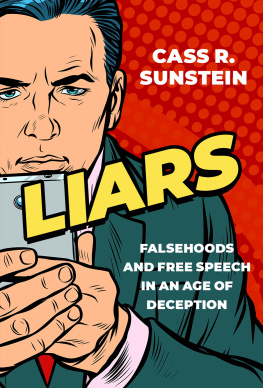

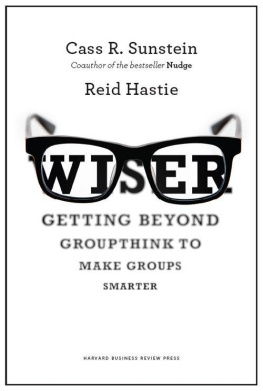

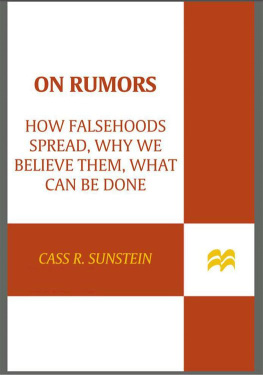


 ROGER SHERMAN, 1789
ROGER SHERMAN, 1789